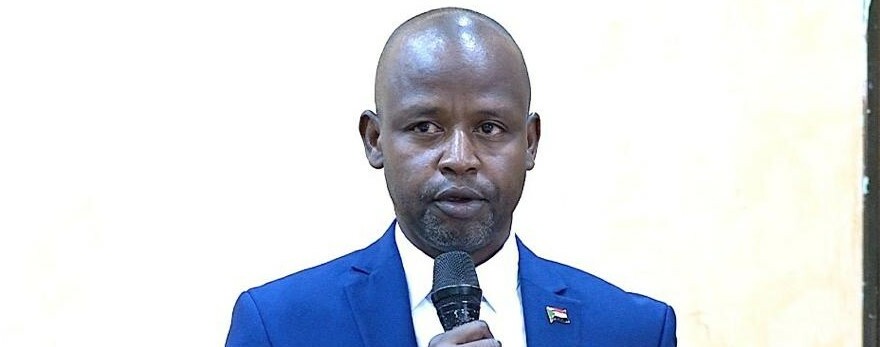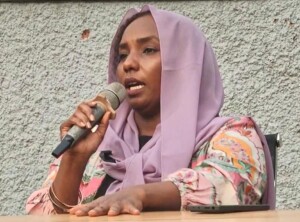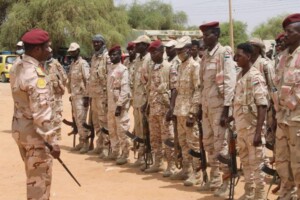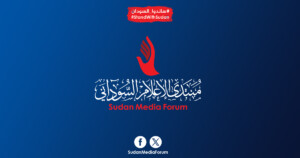US envoy meets Sudan rebel leader to discuss El Fasher

Rebel leader El Hadi Idris, chairman of the Sudan Revolutionary Front rebel alliance (File photo: Supplied)
As part of his current tour in neighbouring countries to Sudan, the United States envoy for Sudan, Tom Perriello, met with El Hadi Idris, head of the Sudan Liberation Movement (SLM) – Transitional Council faction and the Sudan Revolutionary Front (SRF) rebel alliance, in Kampala, the capital of Uganda, on Tuesday.
Periello, currently visiting Uganda, Kenya, Egypt, and Saudi Arabia “to advance efforts to end the conflict in Sudan”, met with SLM-Transitional Council and SRF alliance leader El Hadi Idris, former member of the Sovereignty Council, in Kampala on Tuesday to discuss the overall humanitarian, political, and security situation in Sudan.
In a post on X (formerly Twitter) on Tuesday, the US special envoy said he heard from more than 100 Sudanese civilians and shared “their call for all sides to commit to [the] Jeddah [platform] and to an inclusive democratic transition”.
In an interview with Dabanga, Idris explained that the meeting focused on three main issues: the humanitarian and security situation in El Fasher, the capital of North Darfur, the resumption of the Jeddah platform, and the upcoming conference of the Civil Democratic Forces alliance (Tagadom), which is expected to convene on May 26 in Addis Ababa, the Ethiopian capital.
Regarding the situation in El Fasher, Idris said he briefed the US envoy on “the dangerous humanitarian and security developments in the city”, which he said he witnessed first hand in a recent visit to the North Darfur capital.
The SRF leader stressed that the proposal made in El Fasher, which stipulates that the Sudanese Armed Forces (SAF) and the rival Rapid Support Forces (RSF) should leave the city, remains the best option. “This proposal was presented to all parties, including the RSF, which agreed on the condition of the SAF’s simultaneous departure from El Fasher.
“We conveyed the message to the SAF, and at that time we were counting on the Darfur Joint Force to take over the city’s security once both sides left,” Idris said. “However, the proposal is no longer practical as the SAF and its allies rejected it, choosing instead to fight alongside the army against the RSF”.
Idris blamed the current situation in El Fasher on the failure to agree on the withdrawal of the SAF and the RSF. “If everyone had agreed to the proposal we presented in January and February, we would have avoided much death and destruction from air strikes and indiscriminate artillery shelling. There is no longer an option but to move forward with the exit of fighters and military outposts from the city, particularly from the northern, north eastern, and central areas.”
He warned of the need for civilians to leave the combat zones, “allowing those in the southern regions to move south, and those in the western regions and in the Abuja and Abu Shouk camps to move towards the western outskirts. There was also talk about how to protect civilians if the rival parties agree to a three-day truce.”
The rebel leader asked for help from the international community to protect civilians in areas of fighting during the truce period, “in accordance with neutral forces represented by the SLM-Transitional Council, the Sudan Liberation Movement led by Abdelwahid El Nur (SLM-AW), and part of the SLM faction led by El Taher Hajar”.











 and then
and then